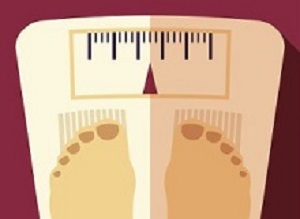 Whether you pick low-carb, low fat or another diet plan, scientific research indicates each can help some people achieve modest long-term weight loss with potential improvement in health risks, according to the Scientific Statement the Endocrine Society issued on managing obesity.
Whether you pick low-carb, low fat or another diet plan, scientific research indicates each can help some people achieve modest long-term weight loss with potential improvement in health risks, according to the Scientific Statement the Endocrine Society issued on managing obesity.
The authors found the Mediterranean Diet and DASH diet provide demonstrated benefits for improving cardiovascular disease, and in lower calorie versions may be beneficial for weight loss.
Given the number of diets, medications and surgical procedures available to treat obesity, the best approach for each individual depends on genetics, health and how well they can adhere to a particular regimen, the statement's authors concluded. Still, maintaining long-term weight loss remains challenging, and individuals with obesity should expect to regain weight when they stop treatment.
"The stigma around this disease makes it difficult to address obesity as a public health problem," said Dr George A Bray of Louisiana State University's Pennington Biomedical Research Centre in Baton Rouge, who chaired the task force that developed the Scientific Statement.
"There often is a mismatch between the patient's cosmetic goals and what can realistically be achieved with diet and exercise. While a modest 5% to 10% weight loss can yield significant health benefits, that may not provide the cosmetic changes patients seek."
Obesity remains a worldwide public health issue. More than 1.9bn adults worldwide meet the criteria for obesity or overweight, according to the World Health Organisation. Obesity is associated with and contributes to a shortened life span, type 2 diabetes, cardiovascular disease, some cancers, kidney disease, sleep apnoea, osteoarthritis and other conditions. Weight loss can lower the risk of developing these conditions and improve health outcomes.
The statement's authors examined the latest scientific evidence on a variety of diets, commercial diet plans such as Weight Watchers, exercise, obesity medications and types of bariatric surgery. Based on a review of more than 400 studies and peer-reviewed articles on obesity, the experts found all of the weight loss interventions had a high degree of variability when it came to effectiveness.
"Individual weight loss approaches worked well for some people and not for others," Bray said. "Currently, we have limited genetic and other information to predict which intervention will work for a given individual. This demonstrates just how complex the problem of severe obesity is."
Surgical approaches tended to lead to greater and longer lasting weight loss than other treatment options, the authors found.
Many consumers turn to dietary supplements, which are not evaluated by the US Food and Drug Administration (FDA). There is little scientific evidence to show these supplements can effectively support weight loss or even that they are safe. Having the FDA oversee dietary supplements and holding these products to higher safety and efficacy standards would benefit public health, according to the statement authors.
Recent studies have examined whether some individuals with a body-mass index (BMI) that meets the criteria for obesity can maintain healthy blood pressure, cholesterol levels, blood sugar and levels of fats in the blood called triglycerides. The statement authors concluded metabolically healthy obesity is likely a short-term state, and individuals who fit the criteria are likely to develop metabolic and cardiovascular problems over time.
"Effectively treating obesity is crucial if we are going to be able to address the devastating impact diabetes and cardiovascular disease have on public health," Bray said. "We are seeing promising research into diabetes medications linked to weight loss, the use of peptides to enhance weight loss, and improved techniques for modulating the way food moves through the digestive system and is absorbed into the body. As our scientific understanding of obesity continues to improve, we hope this will lead to the discovery of new treatment approaches."
Abstract
The prevalence of obesity, measured by body mass index, has risen to unacceptable levels in both men and women in the United States and worldwide with resultant hazardous health implications. Genetic, environmental, and behavioral factors influence the development of obesity, and both the general public and health professionals stigmatize those who suffer from the disease. Obesity is associated with and contributes to a shortened life span, type 2 diabetes mellitus, cardiovascular disease, some cancers, kidney disease, obstructive sleep apnea, gout, osteoarthritis, and hepatobiliary disease, among others. Weight loss reduces all of these diseases in a dose-related manner—the more weight lost, the better the outcome. The phenotype of “medically healthy obesity” appears to be a transient state that progresses over time to an unhealthy phenotype, especially in children and adolescents. Weight loss is best achieved by reducing energy intake and increasing energy expenditure. Programs that are effective for weight loss include peer-reviewed and approved lifestyle modification programs, diets, commercial weight-loss programs, exercise programs, medications, and surgery. Over-the-counter herbal preparations that some patients use to treat obesity have limited, if any, data documenting their efficacy or safety, and there are few regulatory requirements. Weight regain is expected in all patients, especially when treatment is discontinued. When making treatment decisions, clinicians should consider body fat distribution and individual health risks in addition to body mass index.
Authors
George A Bray, William E Heisel, Ashkan Afshin, Michael D Jensen, William H Dietz, Michael Long, Robert F Kushner, Stephen R Daniels, Thomas A Wadden, Adam G Tsai, Frank B Hu, John M Jakicic, Donna H Ryan, Bruce M Wolfe, Thomas H Inge
[link url="https://www.sciencedaily.com/releases/2018/03/180306153732.htm"]The Endocrine Society material[/link]
[link url="https://academic.oup.com/edrv/advance-article/doi/10.1210/er.2017-00253/4922247"]Endocrine Reviews abstract[/link]
